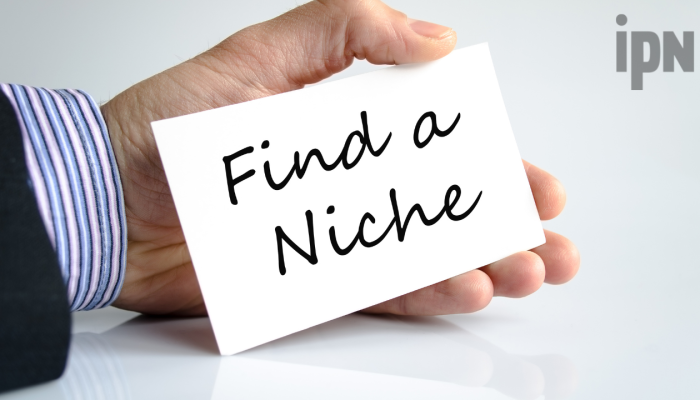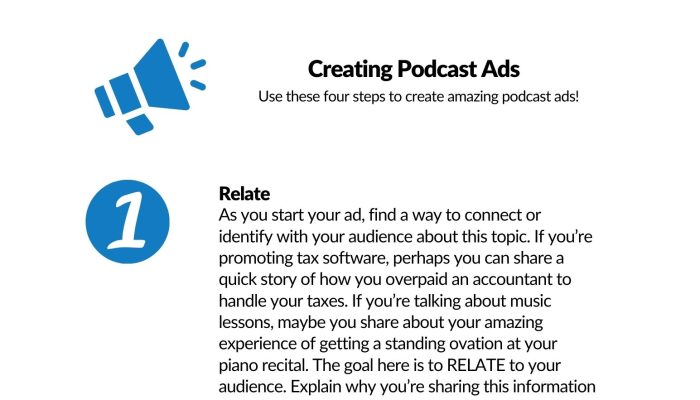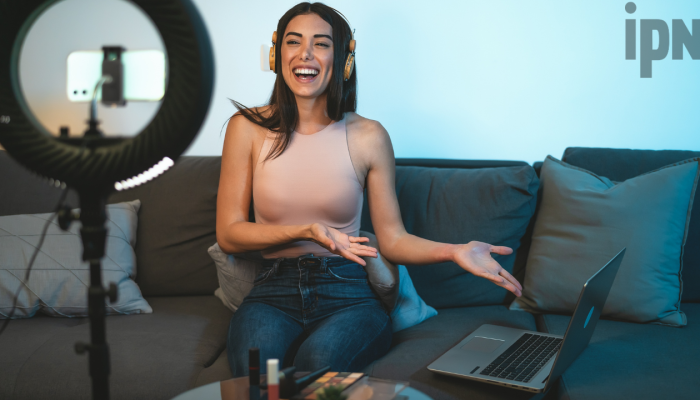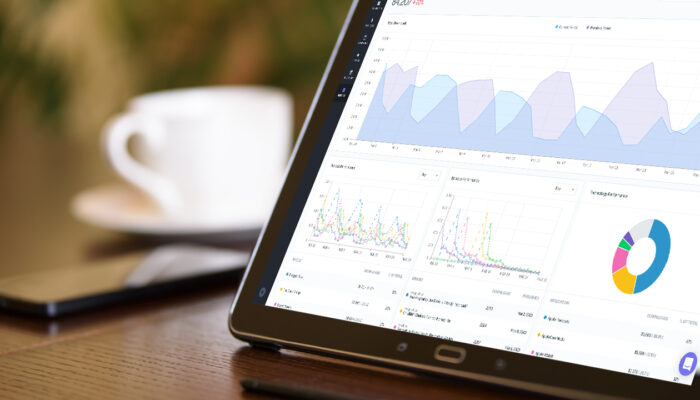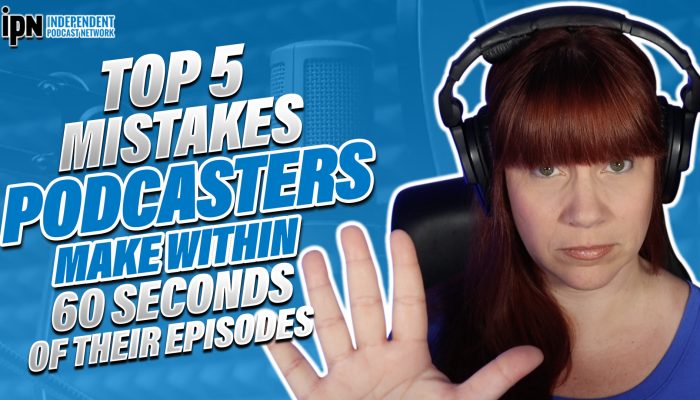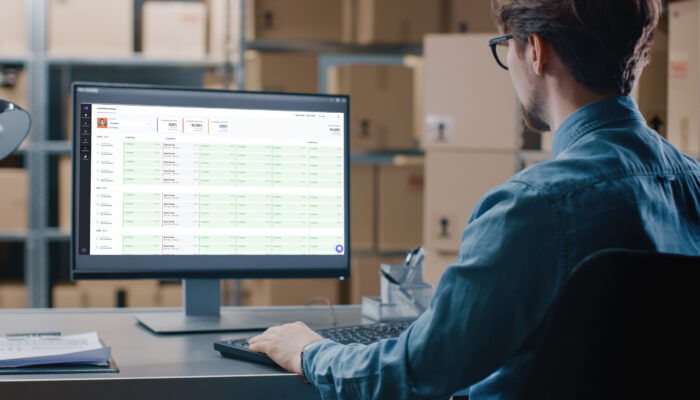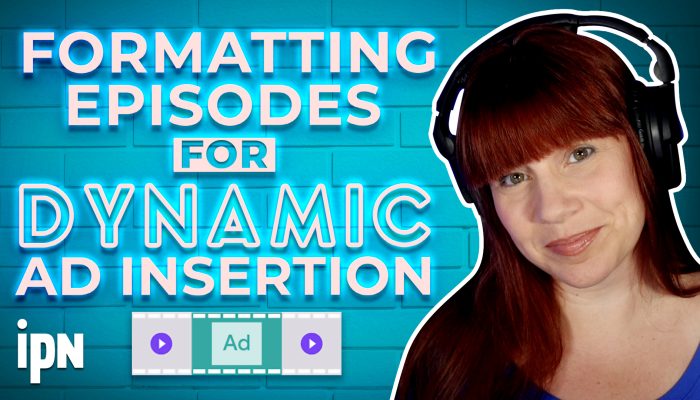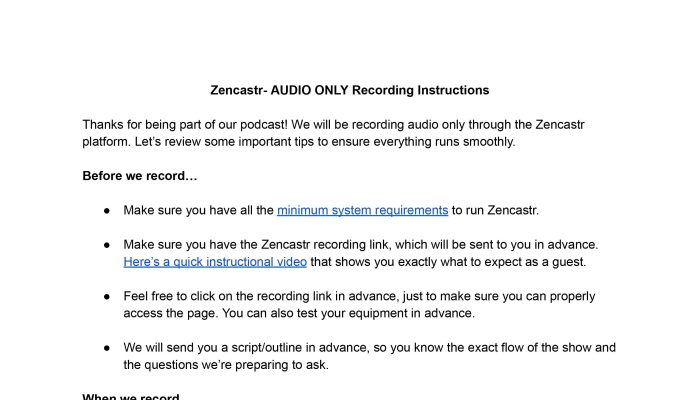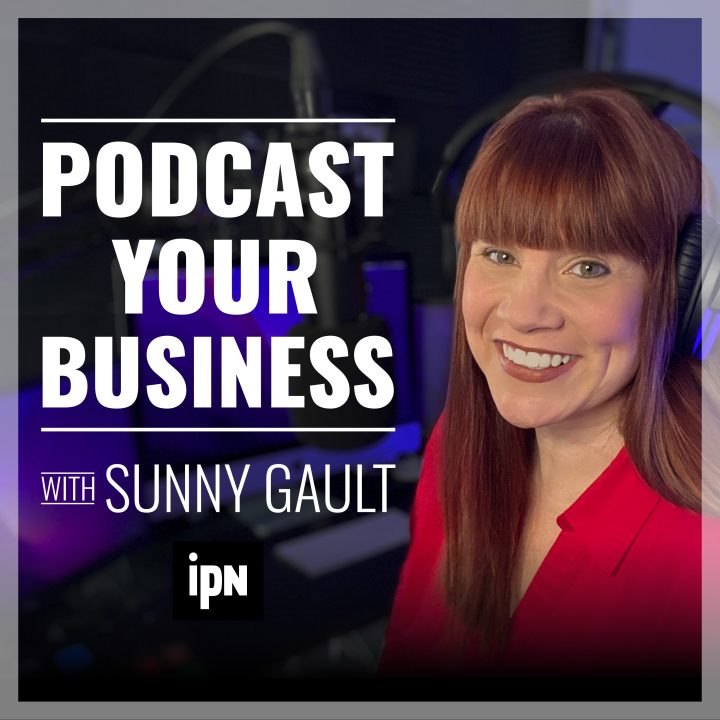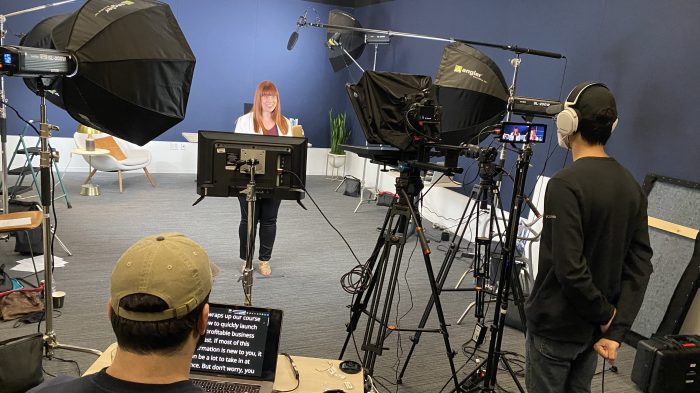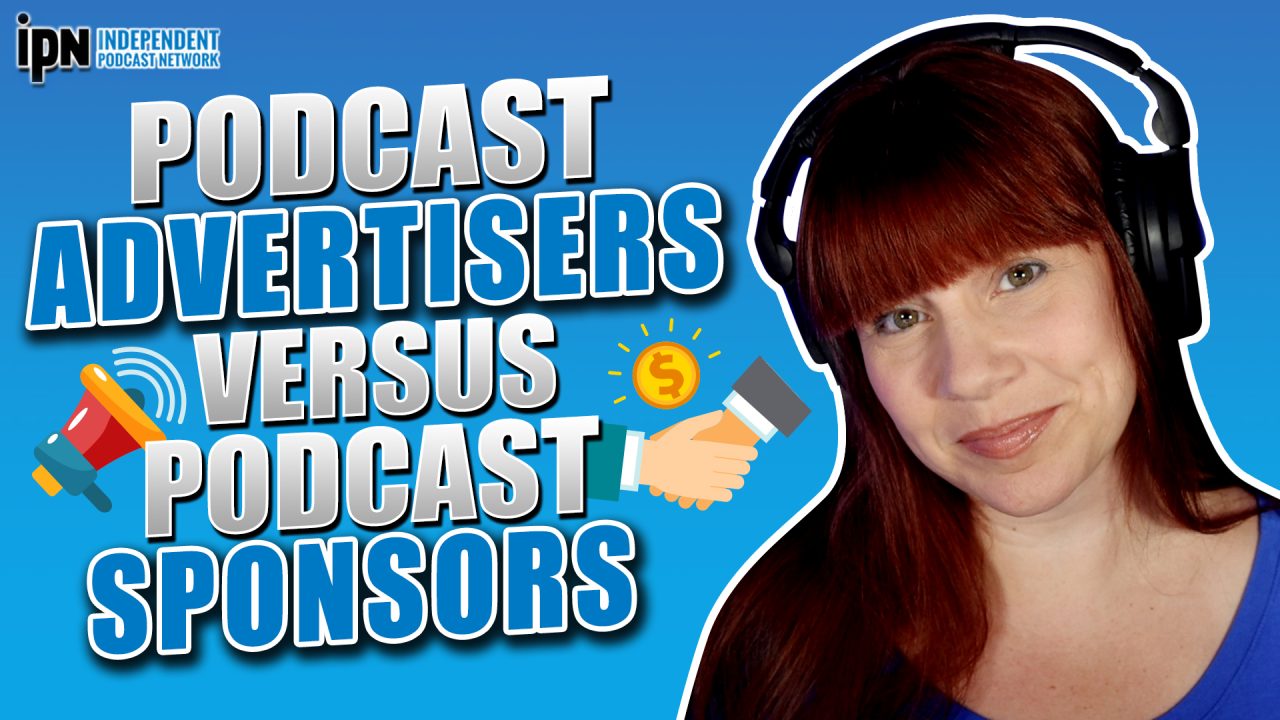
what’s the best way to work with brands?
You’ve been investing time and energy into your show… and now it’s time to make some money for all your hard work. Most podcasters automatically think about working with advertisers and creating commercial spots for their podcasts. You could do that, but you could also focus more on getting sponsors for your podcast. So, what’s the difference between sponsors and advertisers and how do you know what’s best for your show?
Here’s what we’re talking about today…
- The difference between sponsors and advertisers
- How sponsorship and advertising options work within podcasting
- How to know which option is best for your show
free podcast media kit template in canva
Click the link below to download this modified podcast media kit template. It has everything you need to impress potential guests and advertisers. Need a media kit for a group of podcasts? Grab that template here.

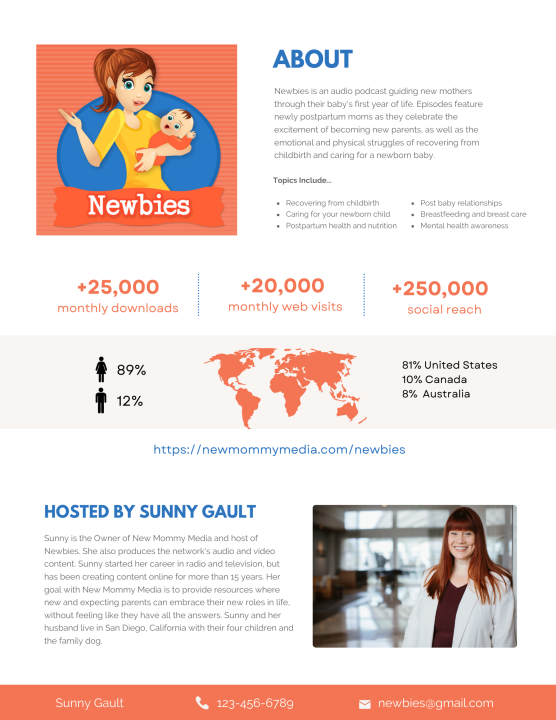
Episode Transcript
0:00
Have you been investing time and energy into your show? And now it’s time to make some money for all of your hard work? Most podcasters automatically think about working with advertisers and creating commercial spots for their podcast. And you could do that. But you could also focus on getting sponsors for your podcast. So what’s the difference between sponsors and advertisers? And how do you know what’s best for your show? That’s the focus of today’s episode. Take it away, Mr. radio man. Podcast Your Business.
0:40
Hello, and welcome to another episode of podcast your business. I’m Sunny Gault. I’m a podcast coach and mentor who has been podcasting for a crazy number of years we are at year 17. I believe I kind of lose track. But I’m also the founder and CEO of Independent Podcast Network. I would love for you guys to check us out at https://independentpodcast.network, we’ve got a lot of free resources for you new resources that are being released each and every week. And we also help podcasters make money with their show, which kind of ties into what we’re talking about today. Today, I’m here to help you create amazing podcasts, especially for those of you who are podcasting for your business. And we do this by mastering the five P’s of podcasting. The five P’s of podcasting is a concept that I created when I launched my very first podcasting course. And I was thinking, Okay, I’ve been podcasting for a while, what are the things that podcasters really need to know if they want to have a successful show? What are the boxes that you need to check and I came up with these five P’s they are prep, plan, produce, promote, and profit, because really everything you need to know to podcasting fits in one of those peas. So in these episodes, we break down something that you need to know. And of course, it fits into one of these peas. So Mr. radio man, what are we talking about today? Profit.
2:08
Usually, profit is at the end of the five piece because usually have to have everything else lined up before you really focus on money. But let’s talk about it. Let’s talk about making money with your podcast. Now personally, I think every podcast needs a strategy when it comes to their revenue. And you should start thinking about it now. Because you may not want to accept the first paycheck that comes along. And if you don’t want that to be you, you do need to think about all this kind of stuff in advance. So here’s what we’re gonna dive into today, we’re going to talk about the difference between sponsors and advertisers. Because they are not the same thing. A lot of the times, the terms do get used interchangeably. But from a revenue standpoint, and a planning standpoint, and an overall involvement standpoint, there are some fundamental differences. So we’re going to break those down. Also, we’re going to talk about how sponsorship and advertising options work within podcasting, because there’s kind of the big view of what sponsors and advertisers do. And then you have to break that down and think about it in podcasting terms. And finally, we’re going to talk a little bit about how to know which option is best for your show. And here’s a little hint, it’s not that you have to do one or the other. But you do have to know the differences. And you do have to know how those would apply to your podcast. And we’re gonna get started on all of that right after this quick break.
3:34
I will never forget the first time a brand handed me a paycheck. For an ad that I ran on my podcast, I had been waiting for that moment for probably close to a year, working my little tail off just you know, pushing out episodes as much as I could. You know, at that point, I think I was doing three podcast episodes a week. And eventually that ramped up to five, but I had three podcasts at the time, and each of them were weekly. And it was a lot of work. And I just remember how I felt when I got that first paycheck. It was amazing. And if you would have asked me at that time, well, sonny, is this a sponsor or an advertiser? I, first of all, I would have looked at you and been like, who cares? But I know a little bit more now become a little bit more savvy. I’ve learned a lot. And now I would be able to tell you that that was an advertiser, would you be able to tell the difference between the two because when you start working with money, and people start paying you to appear on your podcast in different forms, it’s important to know what you’re getting yourself into.
4:42
So let’s just dive into this. And let’s talk about the difference between sponsors and advertisers. So I’m going to give you some definitions, some examples. And the first thing we’re going to start with is sponsors. So sponsors agree to support the other party in this case, it would be you or your podcast In exchange for a pre determined amount of exposure, so they know that their product or their service there, it’s really more about the brand is going to get exposure by partnering with you. Sponsorships are more about relationship building, they usually have more of a long term commitment associated with them. I’m gonna give you some quick examples here. You may have seen at different sporting events, let’s start with the big ones. The arenas whenever someone builds a new arena or every What is it for five, however, 10 years, I guess it depends on the individual contracts, suddenly you are going to Allstate arena, I just made that up, I’m assuming their sponsor somewhere. And now you’re going to QuickBooks arena, and all the branding and everything else changes, right? That is a really big concept of a sponsorship, very involved, right. And you can also see it in other ways too. So athletes can be sponsored, you know, like their clothing can be sponsored. Have you have you ever watched like a NASCAR race, and they’ve got all those stickers and stuff on their cars. That’s an example. Big sports games can be sponsored, like the Super Bowl, right, and you’ve got all those logos. And every time you know, you see something for this, the Super Bowl, it says Super Bowl sponsored by blah, blah, blah, blah. And it’s like everywhere, right? It’s like on the field and everything. So those are, those are big examples of sporting events, because you, you do see that a lot. And there’s other places you could see it too.
6:43
Now if we were to localize this a little bit more a local idea. And I’m going to keep with the sports theme here, since we just talked about big sports opportunities. But I don’t know if you guys have this in in your town where you grew up. But when I was growing up, I played T ball. And then I played softball for a little bit. And every year, my T shirt that had you know, my team’s name on it, and the number on the back. On the back, it also had a company name, it was like a small business in our hometown would sponsor the teams. And it’s literally just the name of the brand, the name of the company, not their individual products, and what their products do and all that kind of stuff. It is general promotion of something. And it’s great for the sponsors, if it connects well with whatever it is that they’re sponsoring. So they have to be savvy about who they’re partnering with. But think about it this way when I give you some examples, and so you can kind of make the correlation on how this can be really big for sponsors. And for Yeah, for brands in general. sponsoring a rock concert can make a company same hip, Oh, yeah. Coachella, we’re gonna sponsor Coachella and we’re Monster energy drink, or, I don’t know, some vodka brand or something like that. So they’re hip. sponsoring a breast cancer event or something like that Alzheimer’s can make you seem sensitive to certain medical issues, specifically for breast cancer can make you seem sensitive to women’s issues. So if that’s important for your brand, because your brand really, you know, focuses on a specific demographic, then that could be a great partnership. Sponsoring children’s events tells parents that you care about their kids. And as we were talking about athletic events, sponsoring athletic events, makes consumers associate your product or service with health and fitness and competition and all that fun stuff. But if you think about it, when a company sponsors something you’re already bringing to the table, your own perception of what that company is, yes, if it’s tied to an event that you care about, it may it may change your perception, a little bit of that brand. It’s really more about name recognition. But for example, if you had a really bad experience, let’s say it’s Progressive Field, I’m originally from Ohio, so we’ve got Progressive Field in Cleveland. If I had a really bad experience with insurance with progressive, let’s say they caught me or they you know, dropped my insurance because you know, I’m in a fire area or whatever, and so I no longer have homeowners insurance. I don’t think that me seeing the big name progressive on the scoreboard is going to make me feel any better about that company. In fact, it might even have the opposite effect. And I may tell everyone in my little row at intermission or you know, when everyone’s singing Take Me Out to the Ballgame. I may tell them about my horrible experience I had with progressive. So you do have to be careful with this but it is about general name recognition, and associating a brand with whatever is going on. It is more just enroll. Okay.
10:02
Now let’s talk a little bit about advertising. Because advertising is much more specific. Advertising offers special advantages that allow a brand to reach as many people as possible whenever they want or need to. So with sponsorships, it’s connected to something big, right? Or an event that’s going on at a particular time of year. But what if an advertiser What if a brand, because you got to be careful when you use these terms, what if a brand has a new product coming out, and it’s not going to tie in it, you know, with any kind of event or anything, you know, they need something that is going to give much more information specifically about this new product or service that they’re launching. That’s when they become an advertiser, okay. And they may create an advertising campaign where their message is put in multiple locations, but it is much more specific. So it communicates a single message with a very specific objective in mind. And it also gives the advertiser more control over what message is being said, because again, my example that I gave of me being in a stadium with the progressive sign, they have no control over how I feel about progressive and my previous experience, okay. Now, if they had an ad, and let’s just say, since we’re talking about podcasts, it’s a podcast ad. So in that ad, I’m learning all about whatever this new product is that they’re selling, they have more control over that, and they have an opportunity to really influence my opinion of them. Based on additional information they’re giving me it’s not just a logo on a board, they are giving me additional information that could change my mind. So it gives them a little bit more control. And depending on the type of advertising a brand does, they could have more control or less control, right. In podcasting, it seems that advertisers have quite a bit of control when they do direct sales ads. So that’s when you’re working directly with an advertiser. A lot of times that will include like a testimonial and things like that, which is something they’re really not gonna get if they do some sort of TV ad, or even a radio ad, right, podcasting is a little bit different. And there’s that education component, which can be really important, especially for brands who are trying to do a little bit of damage control, they may lean more towards doing advertising, as opposed to sponsoring an event because they want to control the narrative, for lack of a better term, they want to control the narrative a little bit more.
12:54
So how do sponsorship and advertising options work within podcasting? It is kind of similar, although I don’t know of a single podcast that has their own stadium. Correct me if I’m wrong, maybe Spotify will be the first but they’re not even a podcast, they’re, you know, they do a bunch of different things. And maybe they already have their own stadium, who knows. So it’s kind of the same thing. But we do have to think about it in slightly smaller terms. So for those of you who have been in the podcasting space for a little bit of time, you may have gone to podcasts conferences, before we just had Podcast Movement was just in Denver, Colorado a few weeks back, or a couple of weeks back. Now, if you were to go to this event, which I’ve been at many, many times, you would see like most types of conferences, different things are sponsored, right? You have perhaps a main sponsor, like a top sponsor, and then supporting sponsors. And every time you walk into a room, there is a big board a bit like a big background that has all the sponsor logos on it. When you go and you get your little lanyard with your photo and your name on it. There’s that little thing that goes around your neck that’s gonna have somebody’s logo on it. And then you go and you pick up your little bag, and the bag has somebody’s logo on it. And then in there, you’ve got all this material with different promos and things like that. So there’s all of that you even have a WiFi sponsor, right, because everyone’s trying to get online, especially at the podcasting conferences. So that’s how it can work. Not really for a podcast, but how I’ve seen it work in the podcasting space, but it can also work for podcasts, but it is more on a micro scale. And I’ve done this before in working with brands. So you can have a main sponsor for your whole podcast season. And what you decide to give that sponsor is really up to you. I’ve done pre roll ads on podcasts because it’s the first thing somebody hears. So it doesn’t matter how long they listen in the podcast, they’re still going to get whatever the message is, and it is usually a short ad maybe 10 to 15 seconds because you do want to get to your content as quickly as possible. I’ve done big banners on our main website, I have done the same kind of banners on a newsletter. I’ve even seen podcasts, and I have not done this personally. But it is an option. And it probably is effective, depending on how popular your podcast is. But I’ve seen podcasters put the sponsor logo on their artwork. I’ve seen it done on the main artwork, although not all podcast destination sites, you know, like update your main artwork all that much. But you could definitely do it for your individual episodes that you release, right? There’s, like most podcast hosting providers will allow you to upload a separate image to go along with each episode. So you could do it there as well. So it’s more again, think about the billboards, think about the stadiums, it’s literally where can you put their logo. And that is more of a sponsorship, it’s just general name recognition, we want to get our name out there in as many places. So when people think insurance, they think progressive, right?
16:12
You can also and I’m kind of, I’m defining this, I haven’t seen any other literature or websites that talk about this. But I would even say, if you have taken individual advertising options, and you have brought them together in some sort of package, I even considered that a sponsored package. Because it’s, it’s not necessarily depending on the components of it. It’s not just one form of advertising, you’re letting them more have access to your brand, and getting their message out there. So let’s say you put together a package, and it really depends on what you’re offering. But I’ve done commercials in the past, I’ve done blog posts, I’ve done videos, you know, in the videos that you just see the logo, that’s it, today’s episode, and maybe I said at the beginning, today’s episode is sponsored by XYZ company. So you can do on videos, your website, you know, talked about banners, it doesn’t have to be a big banner, it could be maybe you have multiple sponsors, you know, and you’ve got a main sponsor that has the big banner on the site, because you get some good traffic to your website. But you also have like those 250 by 250 or 300 by 300 pixel ads on the side, you could do that. You could have sponsorships that are part of your newsletter, where you list out there’s a few guys subscribe to pod news.net. If you don’t subscribe, I recommend that you do it is a free newsletter that goes out that upstate updates you on everything pretty much that’s happening in podcasting as well as podcasting jobs. And I recommend that you check that out. But at the bottom of their newsletter, they have all of their sponsors, you know, and if you are a bigger sponsor, you are going to get a bigger logo. If you are smaller, you’re going to be a little bit further down in the newsletter and it’s going to be a smaller logo. So if you package stuff together like that, that can also be considered a sponsorship opportunity. It’s not as specific. Okay? Likewise, and you probably already figured this out. And advertiser option is going to be very specific. And this is what most of you are probably going to start out with, and there’s no shame in the game. Okay, at the beginning of today’s show, I told you about my first, which now, you know, I would consider an advertiser. For my podcasts, it was 500 bucks. They came on the show, I did a quick interview with them, it was a baby wearing company, because this was a show where we were talking about baby wearing for parents. So it made a lot of sense. It worked right with the content, it was a very popular baby carrier. And that’s how I made my first 500 bucks wasn’t a ton of money, but I was super excited about it.
18:59
So the ad is part of a specific campaign. And it’s for a specific length of time, usually shorter than a sponsorship would be. A lot of times, especially if you’re working with an advertiser, and they bought some commercial time on your podcast, they’ll usually by like maybe a month at a time, if you’re doing dynamic ads, if you are doing baked in ads, maybe they buy you know ads in a couple of episodes, they’re gonna want to test things out, okay, but it’s for a very specific length of time. And a lot of times they are mid rolls. So whether you’re doing dynamic or baked in, these ads are going to appear after your show starts and before it wraps up. So those are mid roll ads, the advertiser is going to provide you with bullet points, sometimes we just call that copy. So they’ll give you a breakdown of what they want said in the ad. And like I said earlier, a lot of times this requires some sort of endorsements, maybe even without them offering to give you any product for that. So be prepared for that sometimes they want to endorse without you actually trying the product. So are you even okay with that. And then a lot of times ads are submitted in advance for approval, so you’ll have to actually do the ad or at least write out the copy, then you send it to them, I like to record the whole thing, just so they can get the full flavor of the ad, send it to them for approval, then it’s scheduled to run. And as far as payment is concerned, it is going to be smaller than a sponsorship, because the whole campaign is smaller. We’ve talked before about CPMs, that stands for cost per mille a, that’s a Latin term. And that just stands for 1000s. So in this case, the amount of money or the cost that you’re going to make per 1000 downloads, and right now, you can expect anywhere between 20 and $30. For your CPM. Now, if you have podcast content that’s very specific, and you’ve got a brand that really likes you, and is really after your demographic, I have heard of CPMs being over $100, that is not unheard of. But for the majority of podcasts, it’s going to be in that 20 to $30 range.
21:33
So now that you know what sponsorships are, what advertisers are and how this equates to podcasting, how do you know which option is best for your show? So what I would do is I would think about your assets, and that is ad sets the bad word. In other words, what’s your inventory? What, what can you actually sell? Because you may think, Oh, I could do this. And I could do that. And yeah, there’s a lot of things you could do. But is that really the smartest thing to do in the beginning, especially for those of you where this is a new thing, and you’re kind of testing the waters to see if you really want to podcast long term, you may not want to go down all of these rabbit holes yet. My advice is to start simple, which is going more the advertising route, and to just focus on your commercial spots, because you’re creating the podcast. So you can create commercial spots, that is part of the format for your show. But if you want to get more into sponsorships, then you’re talking about offering different things. So earlier, I talked about, you know, blog posts and videos and newsletters stuff. If you already have that, that’s fine, then you can incorporate it. And maybe it’s tied into your business. And another way, maybe you offer coaching sessions and other things that you can already put together one of those packages that I was talking about. And maybe that makes sense. But you have to know what your assets are and what kind of inventory you could offer them. And then I would say what are your goals? Do you want to be less involved with brands? Or do you want to be more involved with brands? And what I mean by that is, how much do you want them in your business? Because my experience has has been sponsors are a little bit more hands off. Okay. And that usually does come down the road, you know, you don’t usually work with sponsors right out the gate, it’s more advertisers. For smaller campaigns. And with those smaller campaigns, they are going to want to be more involved. Like I said, you may have to submit your ads in advance, there may be some back and forth. Can you change this? Can you change that? So think about how involved do you want to be with them? Would you prefer to work with fewer brands for a longer period of time or more brands for a shorter period of time? With sponsorships they’re, they’re kind of exclusive. They’re kind of viewed as exclusive, right. So there’s not usually a lot of sponsorships that are offered for a podcast. So you got to snag them while they’re hot, right. So you’re usually working with fewer brands, if that’s the route you want to go, you may want to consider sponsorship, more brands is usually the ads because we’ve talked about this before. But if you have well, regardless of however long your show is, you can have an ad every 15 minutes of content on average. So you can be working with a lot of advertisers, depending on how long your show is right. And then the other thing you have to think about are the money and the payment situation, which really could vary. Every brand works a little bit differently. And sometimes they were with outside agencies. And if you’re talking about much larger sums of money, you’re probably definitely working with some sort of outside advertising agency. And so you just have to ask them, you have to know how quickly you’re gonna get paid. I think I’ve mentioned this on the show before but I just got paid and this was an advertiser, not a sponsor. Okay, so this was for I think, I won’t mention the brand, but they advertise for two months on a bunch of podcasts that are on our network. It’s a very well known brand in the parenting space. Okay. And We just now got paid for that second month of ads. And it is now September, early September. And that ran in February. So do the math on how long that took for everybody to get their portion. And then for us as a network to get what we were owed, and then for us to pay the podcasters. Okay, so these are just questions you have to think about, and knowing the answers to these questions is going to help you to know, do we want to hold off and go after bigger sponsors may take a little bit more time to land those deals? Or are we okay, with working with smaller advertisers? And maybe you do both? There’s nothing that says you can’t. So for example, back to our our sports analogy, you’re watching the Superbowl. And yeah, you’ve got the sponsor logo all over everything, maybe multiple sponsors, but you still have those commercials that they spend millions and millions and millions of dollars for. So they’re doing both. Why couldn’t you do both as a podcast, just know what you’re getting and know what the expectations are, when you go after those types of deals. Okay, guys, I have a great handout for you on the other side of this quick break, we’ll be right back.
26:14
Alright, guys, I hope today’s episode was helpful for you. Again, the terms are used interchangeably. But now you’ve got a leg up. Now you can sound really smart going into these meetings with different brands, and knowing exactly what your podcast can offer. So before we even head into those meetings, let’s back it up a little bit. Because the thing that you’re going to need to impress whether it’s a sponsor, or an advertiser is a one sheet or a media kit for your podcast. And it just so happens that I have a free handout for you, that’s going to really nail this for you. And it’s a template that I’ve created, I actually combined a couple different templates and Canva. So you can download it for free, you can actually download the template from Canva if you want or if you just want to, you know, see what it looks like and you know, grab ideas and whatever you can do that as well. I’m going to include the link to that in the description for this podcast episode. You don’t even have to give me your email address. You can just download it for free, use it and go out there make some money with your show. Go talk to those sponsors and advertisers. Again, we have a lot of free resources on our website and Independent Podcast Network all of those handouts. We’ve got weekly blog posts, more Podcast, episode videos, a whole courses, you guys, everything with the five Ps that I talked about at the beginning of today’s episode. I also have a newer course that focuses on dynamic ad insertion and the benefits and how to prep your show for dynamic ads. So if that’s something that you’re thinking about, take the free course it’s free. What do you have to lose? Right? So check it out https://independentpodcast.network. Until next week, remember, podcasts are awesome!
